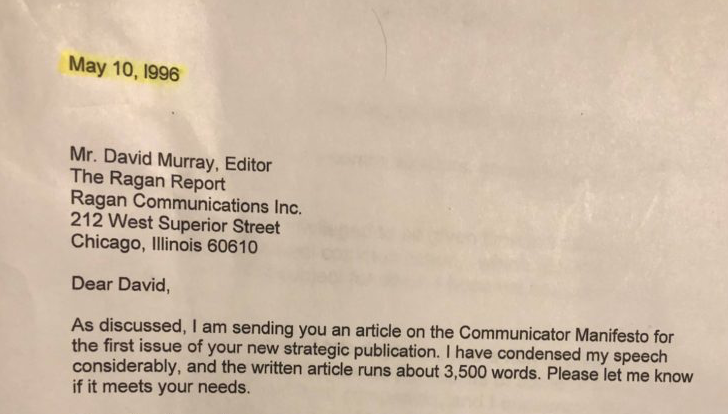Pulling Back the Curtain on the Speechwriting Process
February 21, 2023
Why we decided to publish an annotated version of Boston Mayor Michelle Wu's first State of the City Address.
Four weeks ago, snow was in the forecast again for Boston. But by the time Mayor Michelle Wu took the stage at MGM Music Hall, the unconvincing afternoon flurries had given way to steady rain.
It was a relief for me, as her Director of Speechwriting, because just a few hours earlier we’d made the call to not tie the opening story of her speech—about the previous year’s blizzard—to the evening’s forecast. It was one of the smaller decisions we made about her remarks, but it ended up being the right one.
One of the bigger decisions came after the applause subsided; after the mayor walked off to hug the team waiting for her backstage; after the next day’s headlines and key takeaway articles had already gone to print.
I’m talking about the decision to publish an annotated copy of the mayor’s full remarks, with historical context, additional facts and statistics, and commentary on the drafting process and final language.
The idea originated, as so many do, with the minds in the Mayor’s Office of New Urban Mechanics—or as one colleague once called them, “the nerdy cool kids of City Hall.” And while credit for the concept goes to MONUM, the fact that it was considered, pursued, and published, is a reflection of this particular mayor’s philosophy of governance.
When Mayor Wu was sworn in (well before I started in my role), she spoke movingly of the first time she set foot in City Hall. How she felt invisible, intimidated, and reminded of all the ways government can seem imposing and impenetrable to those outside of it—especially if they’ve rarely seen themselves represented in its leadership.
It is that empathy and understanding that drives the mayor’s inclination toward inclusion and transparency. And it’s that same desire—to let people into the thinking and processes behind whatever it is we create, whether that’s a new park, policy, library, housing complex, or speech—that drove the decision to publish the annotated address.
Unfortunately, some people don’t see it that way. A few days after the annotated script went live, I was told one anonymous veteran speechwriter said, “I can’t imagine any Bostonian who wants to pull that curtain back and see there are people telling the Mayor what to say and how to say it.”
I can understand that perspective. The book my peers invoke most often in conversations about their inspiration for wading into this profession is White House Ghosts: Presidents and Their Speechwriters. There is a long-held ethos of anonymity among speechwriters, and it’s an ethos worth unpacking.
The rationale for remaining in the shadows is pretty straightforward: You don’t want your principal—the CEO, musician, athlete, activist, or public official you write for—to seem inauthentic, insincere. If they’re just relying on people to tell them “what to say and how to say it,” that’s probably not something you want to disclose.
But, more often than not, good principals are active collaborators in the creative process—not magicians preoccupied with protecting the secrets to their tricks. In the weeks leading up to the State of the City, the mayor was regularly up until the early hours of the morning live-editing the draft of the speech with me, and a few of her closest advisors, in a Google Doc. In that case, your product isn’t just smoke and mirrors and sleight of hand. It’s the result of savvy leadership and substantive work—the combined efforts of a team of stagehands and sound technicians and artistic directors whose vision, ability, and advice you trust.
In a recent guest essay for the New York Times about the State of the Union, journalist and producer Josh Tyrangiel notes how “preposterous” it is to pretend that cities, states, and nations are run by just one person. Whatever your political leanings, you’d be hard pressed to make the case that Mayor Wu isn’t a strong thinker with an intimate understanding of the policies she creates. She’s secure enough in her leadership to recognize that devoting time and energy to manufacturing the perception of its totality isn’t just laughable—it’s irresponsible, when there’s real work to be done.
All this to say: If you just want to be told what to say and how to say it, by all means, keep that curtain drawn. But if your approach to leadership centers community and invites collaboration—if you’re just as proud of your process as you are of your product—look for opportunities to let people in. Who knows what you might learn.




